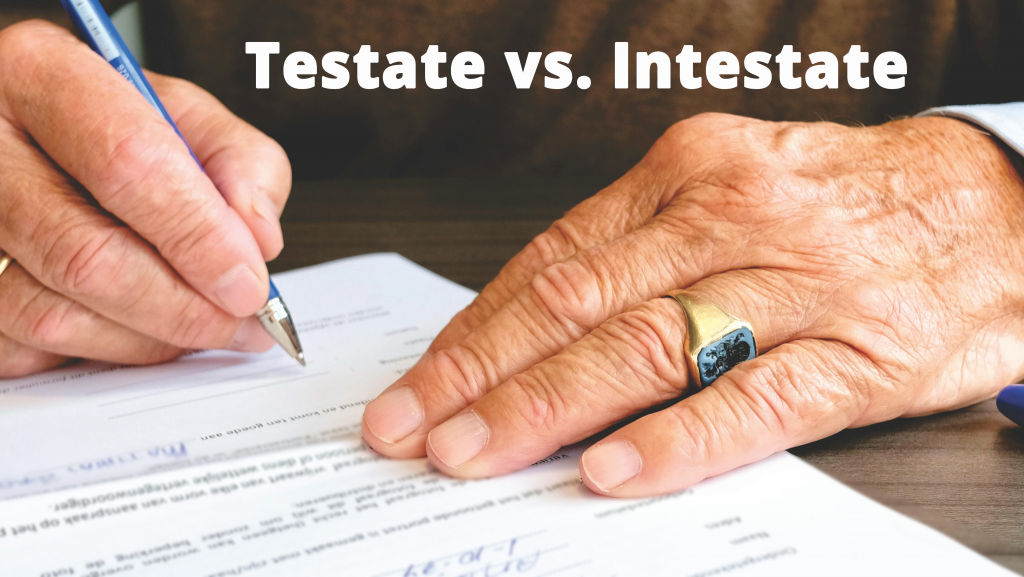Difference Between Testate and Intestate Succession: A Crucial Legal Guide
Introduction
The passing of a loved one often brings emotional and legal complexities, especially concerning inheritance. One of the most significant aspects of estate administration is determining whether the deceased left a will (testate succession) or died without one (intestate succession). These two succession types influence how an estate is distributed, who benefits, and the legal procedures involved.
This article provides an in-depth look at the difference between testate and intestate succession, their implications, and key legal considerations. Whether you are planning your estate or managing a loved one’s inheritance, understanding these concepts is crucial to avoid legal pitfalls.
What is Testate Succession?
Testate succession occurs when a person dies leaving a valid will that dictates how their estate should be distributed. This means the deceased (testator) has exercised their right to determine who inherits their assets, including properties, investments, and personal belongings.
Key Elements of Testate Succession
Existence of a Valid Will:
The deceased must have prepared a legally valid will before their passing.
The will should comply with legal formalities, such as being written, signed, and witnessed per the jurisdiction’s laws.
Named Beneficiaries:
The will specifies individuals or organizations (e.g., charities) who will inherit assets.
Appointment of an Executor:
A personal representative (executor) is designated to administer the estate according to the will’s provisions.
Probate Process:
The will must go through probate, a legal process where the court verifies its authenticity and grants authority to the executor to distribute assets.
Advantages of Testate Succession
The deceased’s wishes are honored, reducing family disputes.
Clear asset distribution, preventing uncertainties.
Appointment of a trusted executor to manage the estate.
Allows inclusion of specific instructions, such as guardianship for minors.
Challenges of Testate Succession
Probate can be time-consuming and costly.
Risk of will contests if beneficiaries or third parties challenge its validity.
If improperly drafted, a will may be declared invalid, leading to intestate succession instead.
What is Intestate Succession?
Intestate succession occurs when a person dies without a valid will. In this case, inheritance laws dictate how the estate is distributed among surviving relatives.
Key Elements of Intestate Succession
Absence of a Will:
The deceased did not leave a will, or the will is declared invalid due to legal shortcomings.
Application of Intestate Laws:
The estate is distributed based on statutory inheritance laws in the jurisdiction.
Appointment of an Administrator:
Instead of an executor, the court appoints an administrator to manage and distribute the estate.
Order of Inheritance:
Laws typically prioritize spouses, children, parents, siblings, and extended family in that order.
Advantages of Intestate Succession
Legally structured distribution ensures family members inherit the estate.
Prevents estate mismanagement since an administrator is appointed.
Can be simpler for small estates with few heirs.
Challenges of Intestate Succession
Lack of personal choice—the deceased has no control over distribution.
Can lead to family conflicts, especially among surviving relatives.
The process can be lengthy, requiring extensive court proceedings.
Higher estate taxes and legal fees due to court involvement.
Key Differences Between Testate and Intestate Succession
| Aspect | Testate Succession | Intestate Succession |
|---|---|---|
| Existence of Will | Requires a valid will | No will exists or will is invalid |
| Control Over Assets | The deceased decides | Governed by statutory laws |
| Appointment of Executor/Administrator | Testator appoints an executor | Court appoints an administrator |
| Legal Process | Probate required but follows testator’s wishes | Court decides distribution per intestacy laws |
| Flexibility | Highly flexible—testator can include specific provisions | Rigid—follows predefined laws |
| Potential Disputes | Can arise if will is contested | More disputes possible due to lack of clear wishes |
| Time and Cost | Probate may take time, but estate is pre-planned | Often longer due to legal complexities |
Case Law Examples
To better understand how courts handle succession matters, let’s look at relevant case laws:
Case 1: Bankole v. Tade (2010)
In this case, the testator had prepared a will, but one of the beneficiaries challenged its validity, claiming undue influence. The court upheld the will, emphasizing the importance of proper execution and mental capacity in testate succession.
Case 2: In Re Estate of Okafor (2017)
Here, the deceased passed without a will, leading to a long court battle among family members. The court applied intestacy laws, prioritizing the deceased’s spouse and children over extended family. This case highlights the potential conflicts of intestate succession.
How to Avoid Intestate Succession Issues
1. Draft a Legally Binding Will
Ensure your will is properly drafted, signed, and witnessed to comply with estate laws.
2. Regularly Update Your Will
Changes in life (e.g., marriage, childbirth, acquisitions) may require updates to ensure your will remains valid and relevant.
3. Appoint a Competent Executor
Choose a trustworthy executor who will fairly and efficiently administer your estate.
4. Consider Estate Planning Strategies
Apart from a will, explore options like trusts, joint ownership, or gifting assets to reduce probate complexities.
Conclusion
Understanding the difference between testate and intestate succession is crucial for effective estate planning. While testate succession ensures your wishes are followed, intestate succession leaves the distribution to statutory laws, often leading to conflicts. By preparing a legally valid will, you can safeguard your assets, minimize disputes, and ensure your loved ones inherit your estate smoothly.
For professional legal assistance on estate planning, wills, and probate matters, visit CHAMAN Law Firm for expert guidance.


